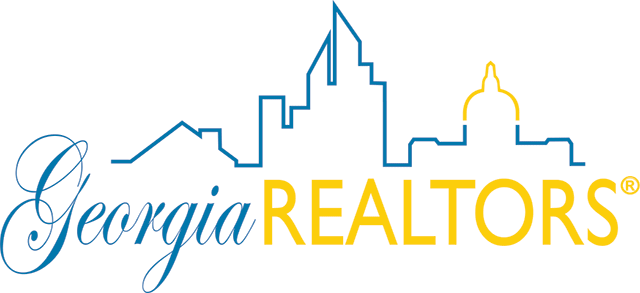
The most important question you should ask yourself when considering Florida's real estate licensing is "What education do I need?" This article will cover the amount of education required before licensure, the time commitment, and how you can make the most of it. We'll also discuss which courses you should take and how much to expect as a result.
Pre-licensing education
You need to take some pre-licensing classes before you can legally practice real estate. Pre-licensing education must be completed for at least 64 hours before you can apply and receive a license. You should be able to cover all aspects of law, real estate, and mathematics. Some courses can cost between $100 and $500. The minimum passing score required to be licensed in Florida is 70 percent. Attorneys do not need to take any pre-licensing courses because they are allowed to sit for the sales associate exam without a pre-license.

There are many options for pre-licensing in Florida. You can either take the course online or visit a company in person. Some courses are self-paced and include practice exams. Others provide a variety study aids including textbooks and practice tests. No matter what your choice is, it's important to meet the state's pre-licensing requirements. There are many online programs that offer pre-licensing education and are free.
Cost of pre-licensing education
The cost of pre-licensing education in real estate depends on where you live. It can run from $100 to $1,000 depending on your state. There are many factors that can explain this. The most common reason is the time and effort required to create real estate courses. These courses are produced by companies that must pay their employees to keep them up-to-date and comply with state laws. These courses are not usually free and can be offered by title companies or brokerages. They are also longer and more complex than other courses.
Regardless of the state you live in, the cost of pre-licensing education to obtain a real estate license in Florida is worth every penny. The Florida real-estate exam has 100 multiple-choice question and a passing score 75%. There are 45 questions based on real estate law and principles and 10 questions that test your mathematical ability. If you study properly, you can expect to pass with a score of 75% or higher.
Time required to complete pre-licensing education
A person must be at least 18 years old to apply for a Florida license. They must also have completed at least 90 hours pre-licensing training and a six hour course in contract writing. They must also be of good moral character. If they are convicted of any felony, they won't be considered for a licensed real estate agent. You must have your fingerprints cleared. They must then be approved by their Broker online, and then complete their continuing education requirements.

Applicants must be at least eighteen years old and have a social security number issued by the United States. A high school diploma is required. Although real estate education is not required in Florida to become licensed broker, it can help you to get the basics down. Florida recognizes licenses obtained from Arkansas, Georgia Georgia, Illinois, Arkansas, and Arkansas. Applicants are eligible to get a license in Florida if they have a real estate license from any of these states. Candidates from Arkansas Georgia Illinois Connecticut and Illinois will need to take a state examination in addition to Florida.
FAQ
What are the pros and cons of a fixed-rate loan?
A fixed-rate mortgage locks in your interest rate for the term of the loan. This ensures that you don't have to worry if interest rates rise. Fixed-rate loans offer lower payments due to the fact that they're locked for a fixed term.
What are the chances of me getting a second mortgage.
Yes. But it's wise to talk to a professional before making a decision about whether or not you want one. A second mortgage is often used to consolidate existing loans or to finance home improvement projects.
What should you look for in an agent who is a mortgage lender?
A mortgage broker helps people who don't qualify for traditional mortgages. They search through lenders to find the right deal for their clients. There are some brokers that charge a fee to provide this service. Other brokers offer no-cost services.
Statistics
- It's possible to get approved for an FHA loan with a credit score as low as 580 and a down payment of 3.5% or a credit score as low as 500 and a 10% down payment.5 Specialty mortgage loans are loans that don't fit into the conventional or FHA loan categories. (investopedia.com)
- Some experts hypothesize that rates will hit five percent by the second half of 2018, but there has been no official confirmation one way or the other. (fortunebuilders.com)
- This seems to be a more popular trend as the U.S. Census Bureau reports the homeownership rate was around 65% last year. (fortunebuilders.com)
- This means that all of your housing-related expenses each month do not exceed 43% of your monthly income. (fortunebuilders.com)
- Based on your credit scores and other financial details, your lender offers you a 3.5% interest rate on loan. (investopedia.com)
External Links
How To
How do I find an apartment?
When you move to a city, finding an apartment is the first thing that you should do. This requires planning and research. This includes researching the neighborhood, reviewing reviews, and making phone call. You have many options. Some are more difficult than others. The following steps should be considered before renting an apartment.
-
Online and offline data are both required for researching neighborhoods. Online resources include Yelp and Zillow as well as Trulia and Realtor.com. Local newspapers, landlords or friends of neighbors are some other offline sources.
-
Read reviews of the area you want to live in. Yelp. TripAdvisor. Amazon.com all have detailed reviews on houses and apartments. You might also be able to read local newspaper articles or visit your local library.
-
Call the local residents to find out more about the area. Talk to those who have lived there. Ask them about their experiences with the area. Ask if they have any suggestions for great places to live.
-
Check out the rent prices for the areas that interest you. Renting somewhere less expensive is a good option if you expect to spend most of your money eating out. Consider moving to a higher-end location if you expect to spend a lot money on entertainment.
-
Find out all you need to know about the apartment complex where you want to live. What size is it? What is the cost of it? Is it pet friendly? What amenities are there? Do you need parking, or can you park nearby? Are there any special rules for tenants?